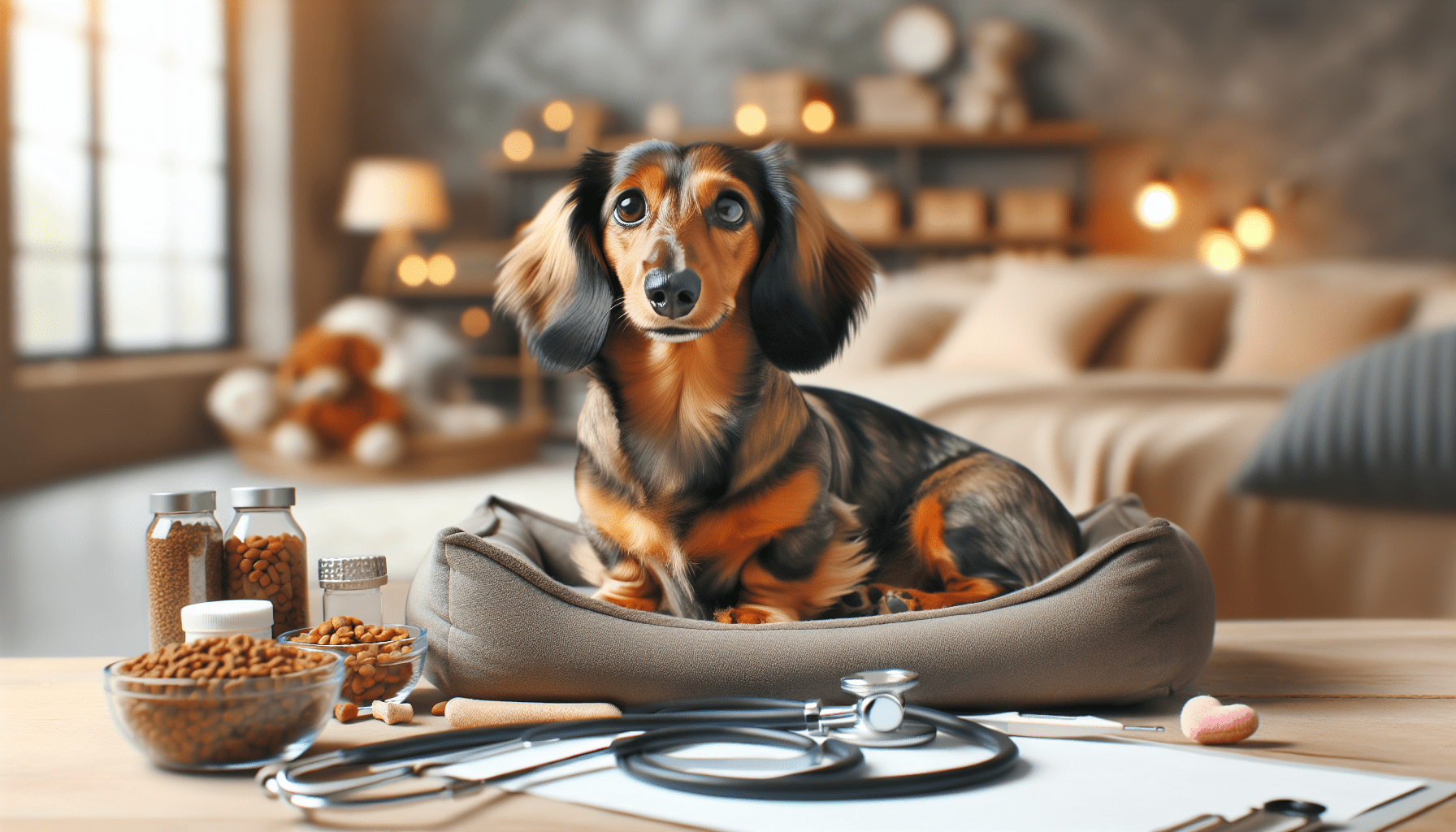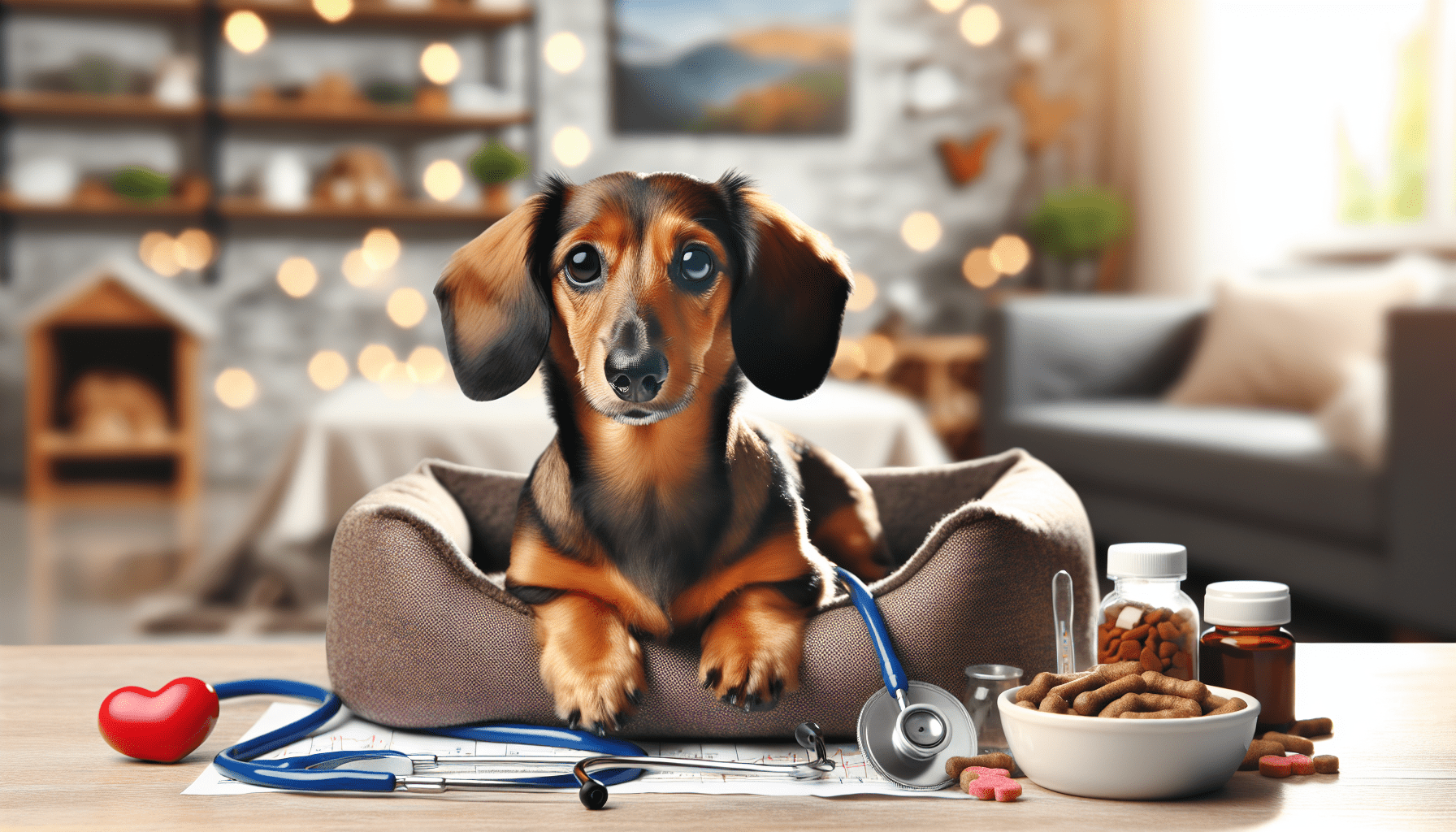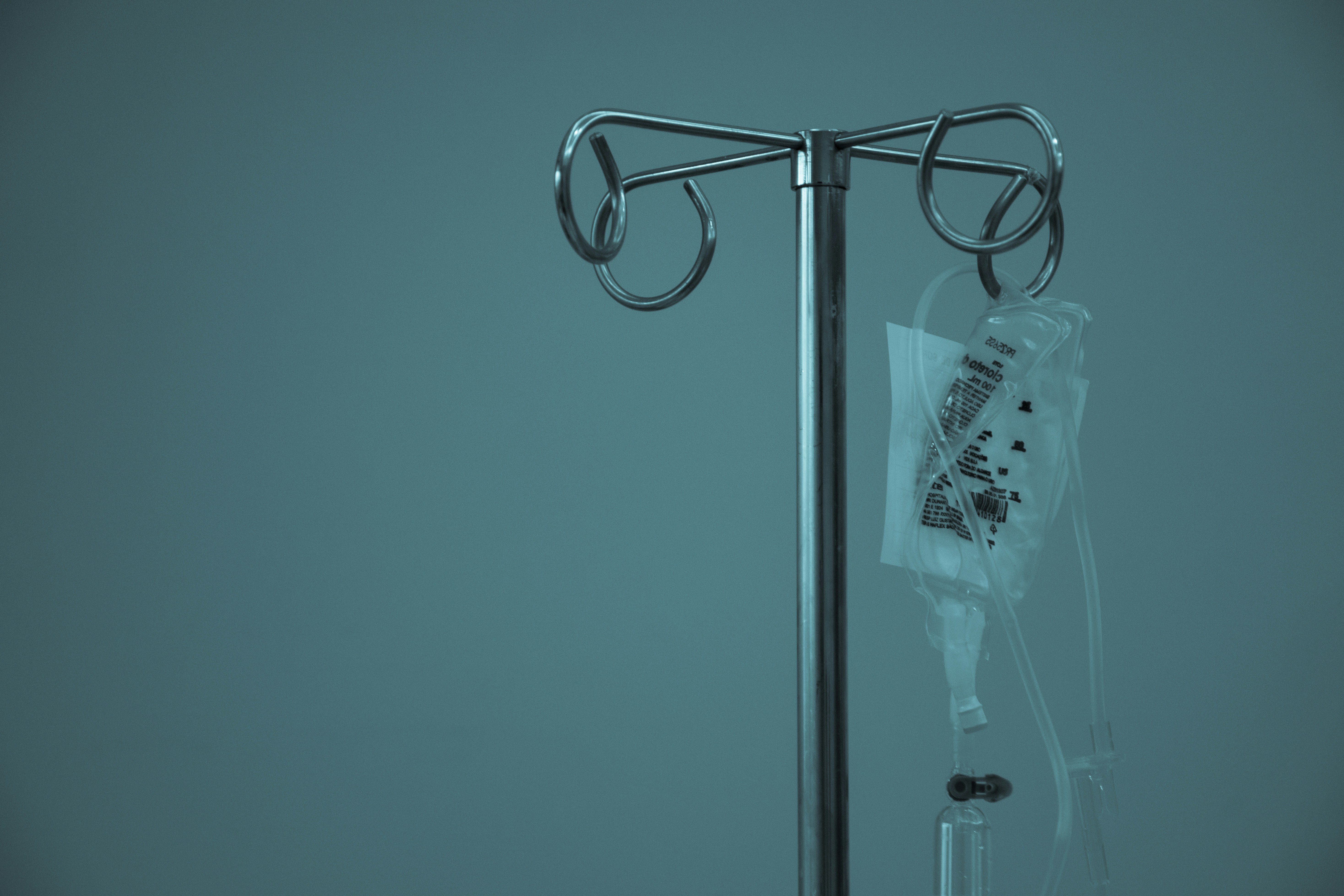What is the most common illness in Dachshunds?
What comes to mind when you think about the health of your beloved dachshund? Like us, your furry friend can face various health challenges throughout life. Yet, don’t worry. Understanding the most common illnesses in dachshunds can empower you to keep your pup healthy and happy for many years to come.
This image is property of images.unsplash.com.
Understanding the Unique Body of Dachshunds
With their signature elongated bodies and short legs, Dachshunds possess a unique physiology that comes with its own strengths and vulnerabilities. Their structure is charming, but it unfortunately predisposes them to certain health issues. Knowing your dachshund’s anatomy can be the first step in recognizing when something isn’t right.
Why Body Shape Matters
Dachshunds were originally bred for hunting, often burrowing into dens to chase out their prey. While a marvel of evolution, this distinctive body shape is directly related to some health risks, particularly the spine and joints.
Common Health Issues Linked to Body Shape
Due to their long spine and short limbs, dachshunds can encounter various health challenges. Let’s unveil the most frequent issues so you can be more proactive in your dog’s care.
Intervertebral Disc Disease (IVDD)
One of the dachshunds’ most common health problems is Intervertebral Disc Disease (IVDD). This condition occurs when the soft cushioning between the vertebrae in the spine becomes herniated or ruptured, leading to pain, nerve damage, or even paralysis.
Symptoms of IVDD
- Reluctance to move or play
- Signs of pain (whining or yelping)
- Difficulty walking or standing
- A wobbly or unstable gait
- Licking or nibbling at the back
Recognizing these symptoms early can make all the difference in managing this potentially serious condition.
Treatment Options
For managing IVDD, several approaches may be recommended:
- Conservative Management: This might include rest, pain relief medications, and sometimes physical therapy.
- Surgery: In severe cases, surgery might be necessary to relieve pressure on the spinal cord.
Preventative Measures
Preventing IVDD often revolves around weight management and minimizing high-impact activities like jumping or running on uneven surfaces. Consider incorporating gentle exercises and ensuring your dachshund doesn’t overexert themselves.
Obesity
Obesity is another prevalent concern for dachshunds. Their charming personalities often come with a relentless talent for convincing you to share snacks. While it’s tempting to indulge them, unwarranted extra weight can lead to significant health risks.
Identifying Obesity in Dachshunds
- Difficulty in feeling ribs or spine
- Fat deposits around the waist
- Reduced energy levels or unwillingness to exercise
Being aware of your dog’s body condition is key. You want them to be in the best shape possible!
Managing Weight
Maintaining a healthy weight for your dachshund includes:
- Portion Control: Measure their food and avoid free-feeding.
- Balanced Diet: Invest in high-quality dog food specifically formulated for small breeds.
- Regular Exercise: Keep them active in daily walks or play sessions.
Health Issues Caused by Obesity
Excess weight can lead to numerous health challenges, such as heart disease, diabetes, and increased risk for joint problems, especially given their body structure. Staying on top of their weight can ultimately extend their life.
Dental Disease
Dental disease is all too common in dachshunds. Just like humans, dogs can suffer from plaque buildup, gingivitis, and tooth decay if proper dental hygiene isn’t maintained.
Signs of Dental Problems
- Bad breath
- Red or bleeding gums
- Excessive drooling
- Difficulty eating
Recognizing these signs can help you take action before a minor issue develops into a more severe condition.
Preventative Care
You can take several steps to promote dental health:
- Regular Teeth Brushing: Brush their teeth several times a week using toothpaste made for dogs.
- Dental Chews: Consider providing dental chews that promote better oral health.
- Vet Check-ups: Schedule regular dental check-ups to catch any issues early on.
This image is property of images.unsplash.com.
Hip Dysplasia
Hip dysplasia is a genetic condition primarily affecting larger breeds, but due to their unique build, dachshunds can also develop it. It occurs when the hip joint doesn’t fit into the hip socket properly, which can lead to arthritis and pain.
Recognizing Symptoms of Hip Dysplasia
- Limping or unusual gait
- Difficulty rising or jumping
- Reluctance to play or exercise
- Noticeable discomfort when touched on the hips
If you notice any of these signs, it’s critical to consult your veterinarian for an accurate diagnosis.
Treatment Options
Depending on the severity, treatment can range from:
- Weight Management: Reducing weight in overweight dogs can significantly ease their condition.
- Medication: Anti-inflammatory medications can help manage pain.
- Surgery: In severe cases, surgeries such as hip replacement might be necessary.
Preventative Strategies
Preventing hip dysplasia or minimizing its effects involves:
- Maintaining an ideal weight to lessen joint pressure.
- Encouraging low-impact exercise to strengthen muscles surrounding the joints.
Degenerative Myelopathy
Degenerative Myelopathy (DM) is a progressive disease of the spinal cord that affects the mobility of dachshunds. It often appears in older age. While there’s currently no cure, understanding DM can help you manage your dog’s quality of life.
Symptoms of Degenerative Myelopathy
- Dragging the back paws
- Loss of coordination or balance
- Weakness in the back legs
- Increased stumbling or difficulty walking
Recognizing the signs early is crucial as it allows you to prepare for the changes your dog will experience.
Management of DM
As DM progresses, consider these management strategies:
- Physical Therapy: Keeping muscles strong can help with mobility.
- Supportive Harnesses: A harness can help your dachshund navigate the house comfortably.
- Home Modifications: Reduce hazards in your home to accommodate their changing mobility.
Keeping a close eye on your dog’s behaviour can provide insights into the progression of this illness.
This image is property of images.unsplash.com.
Skin Allergies
Dachshunds are prone to skin allergies, which can stem from environmental factors, food, or parasites. If not managed properly, allergies can lead to discomfort.
Signs of Skin Allergies
- Itching and scratching
- Redness and inflammation
- Hair loss
- Ear infections
Understanding what triggers these allergies can significantly improve your dog’s comfort levels.
Managing Skin Allergies
- Regular Grooming: Maintaining a clean and well-groomed coat can help reduce allergens.
- Hypoallergenic Diets: Consider a special diet if food allergies are suspected.
- Consultation with a Vet: A veterinarian can help identify specific allergens and recommend treatments.
Patellar Luxation
Patellar luxation is another common condition in mini and toy breeds, including dachshunds. This occurs when the kneecap dislocates or moves out of its normal position.
Identifying Patellar Luxation
Common symptoms can include:
- Skipping or skipping of a leg while running
- Occasional lameness
- Pain when the knee is manipulated
Treatment and Management
Treatment options vary based on severity:
- Non-surgical: Many dogs lead normal lives with minimal therapy.
- Surgery: In severe cases, surgical intervention may be warranted to realign the patella.
Prevention Tips
While genetics play a significant role, ensuring your dog maintains a healthy weight and monitoring their activity levels can reduce risks associated with patellar luxation.

Chronic Ear Infections
Dachshunds have floppy ears, which can trap moisture and bacteria, leading to recurrent ear infections. Staying vigilant can help you catch any issues early.
Signs of Ear Infections
- Scratching at ears
- Bad odour coming from the ears
- Redness or swelling inside the ear canal
- Discharge from the ears
Treating and Preventing Ear Infections
- Regular Cleaning: Gently clean your dog’s ears weekly with a veterinarian-recommended solution.
- Vet Visits: Regular check-ups help catch infections early before they become recurrent issues.
Caring for Your Dachshund’s Health
Keeping your dachshund healthy is a continuous journey. Emphasizing regular checkups, vaccinations, and parasite control can provide a strong foundation for your dog’s overall well-being. Here you will find a few tips that can significantly contribute to their health.
Regular Vet Check-Ups
Establishing a yearly vet schedule can help catch potential issues before they become more severe. Your vet will perform exams and recommend vaccinations based on your dog’s age, health, and lifestyle.
Nutrition
Understanding what goes into your dog’s bowl is vital. Quality nutrition adapted to your dachshund’s specific needs can prevent numerous health issues. Consult with your veterinarian to find the best food for your dog.
Keep Their Mind Active
Engaging their minds can make a world of difference in your dog’s well-being. Consider puzzle toys, obedience training, or even agility exercises to keep things interesting. A mentally stimulated dog tends to be a happier dog!
Socialization
Socializing your dachshund helps curb behaviours that could lead to stress and anxiety. Whether it’s dog parks, canine classes, or simple walks in the neighbourhood, helping your dachshund develop positive interactions with their surroundings is invaluable.
Hydration and Hygiene
Ensure your dog always has access to fresh water, especially as the weather warms up. Poor hydration can lead to a host of issues, including kidney problems. Maintaining basic hygiene through grooming and bathing is essential for their overall health.

Final Thoughts
Being a dachshund owner is filled with joy and companionship, but it comes with the responsibility of ensuring their health. Understanding the common illnesses that impact dachshunds empowers you to take proactive actions. While their unique structure can render them susceptible to various conditions, you can help your furry companion lead a happy, healthy life with diligence and care.
After all, they may be small, but your dachshund has a big heart, and their love deserves just as much care and attention in return. Embrace this journey, stay informed, and cherish every moment with your precious pup.


